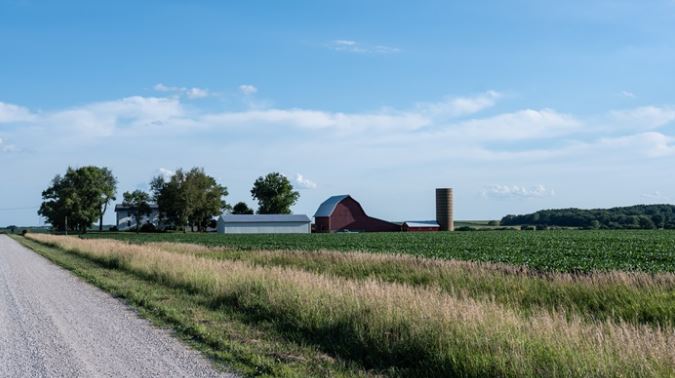
The U.S. Department of Agriculture (USDA) National Institute of Food and Agriculture (NIFA) announced today an investment of $70 million in seven creative and visionary agricultural projects to transform the U.S. food and agricultural system and sustainably increase agricultural production in ways that also reduce its environmental footprint.
This Fiscal Year 2023 investment is part of the Sustainable Agricultural Systems program area of NIFA’s Agriculture and Food Research Initiative, the nation’s leading and largest competitive grants program for agricultural sciences.
The innovative program focuses on a broad range of needed research, education and Extension solutions – from addressing agricultural workforce challenges and promoting land stewardship to addressing climate change impacts in agriculture and filling critical needs in food and nutrition.
“Agriculture is facing a multitude of complex challenges,” said Dr. Chavonda Jacobs-Young, USDA Chief Scientist and Under Secretary for Research, Education and Economics. “We need all hands on deck developing creative, sustainable and strategic ways to feed, clothe and fuel future generations.”
The $10 million awards are for coordinated agricultural projects (CAPs), which are larger-scale and longer-term investments that integrate research, education and Extension efforts. These projects promote collaboration, open communication, information exchange and reduce duplication efforts by coordinating activities among individuals, institutions, states and regions.
“These research investments support exciting projects that integrate innovative systems-based thinking, methods and technologies to establish robust, resilient, and climate-smart food and agricultural systems,” said NIFA Director Dr. Manjit Misra. “These visionary projects will improve the local and regional supply of affordable, safe, nutritious and accessible food and agricultural products, while fostering economic development and rural prosperity in America.”
Explore the seven projects, which include the following:
- At the University of Wisconsin-Madison, Dr. Erin Silva is leading a collaboration with the Great Lakes Intertribal Food Coalition, the Wisconsin Tribal Conservation Advisory Council, and the Menominee Nation on a transdisciplinary project that aims to scale up traditional Indigenous food production practices — practices that for generations have already been climate-smart and sustainable — by expanding production, processing, storage, and distribution systems, as well as education and Extension programs, that are needed to support integrated crop-livestock systems, cover crops, and rotationally-grazed cattle and pastured chickens.
- At the University of Maine, Dr. Hemant Pendse is leading an integrated research, education and Extension effort to advance the bioeconomy by developing biorefinery technologies that will make the millions of tons of available low-grade woody biomass – which currently has a very limited market – more commercially viable in both the sustainable aviation fuel and fish feed sectors.
- At Texas A&M AgriLife Research, Dr. Muthu Bagavathiannan is leading a project that seeks to transform cotton production in the southern United States into a more sustainable, climate-smart enterprise by applying improved precision management practices to increase carbon sequestration and reduce greenhouse gas emissions; enhance pest control, and nutrient and water management; and address labor challenges while creating new market opportunities.
AFRI, which also makes grants in the Foundational and Applied Sciences and Education and Workforce Development program areas, is designed to improve plant and animal production and sustainability, and human and environmental health. Grants are available to eligible colleges, universities, and other research organizations.
NIFA is building a better future by nurturing innovation in the food and agricultural sciences and cultivating equitable change in communities across the nation. Through investment in science as a solution to our greatest challenges, USDA NIFA collaborates with partners to drive research, education and Extension — improving lives, supporting livelihoods and sustaining the planet. In FY 2023, NIFA’s total investment was $2.5 billion.
Visit X: @USDA_NIFA; LinkedIn: USDA-NIFA. To learn more about NIFA’s impact on agricultural science, visit www.nifa.usda.gov/impacts.
















